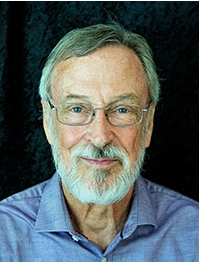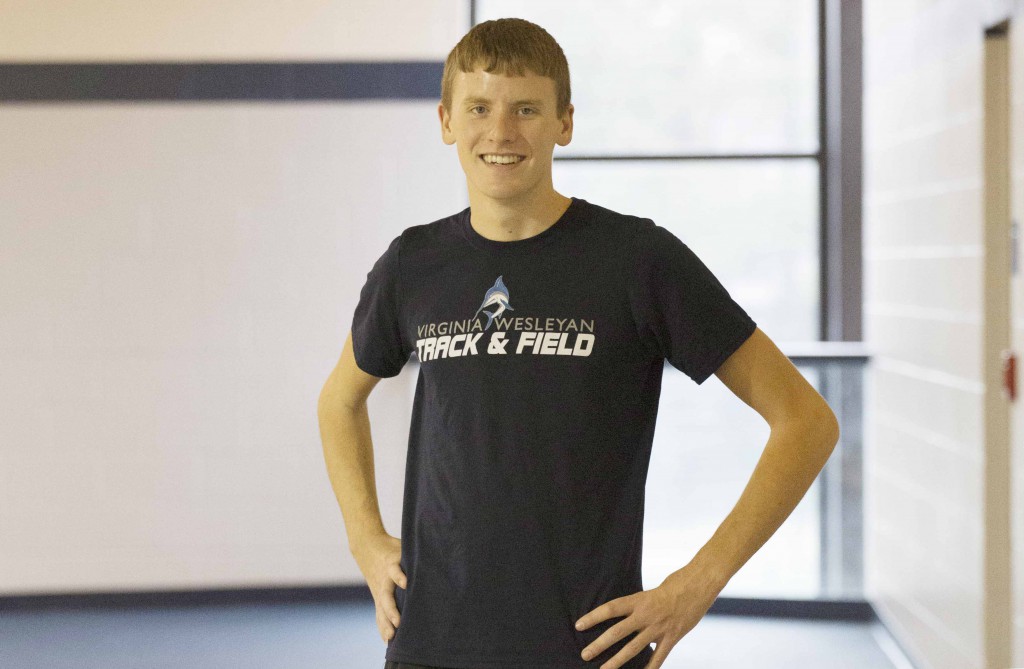KAITLYN DOZIER
Editor-in-Chief
Dr. Howard W. Jones, Jr., professor emeritus of obstetrics and gynecology at the Eastern Virginia Medical School, spoke on campus last Thursday on the debate over personhood and reproductive technology. The event marked the inaugural presentation of the Justine L. Nusbaum Lectureship in VWC’s Center for the Study of Religious Freedom (CSRF).
“How often do you get to sit in the same room as someone as brilliant as Dr. Jones? Especially at the age of 102, it’s really incredible,” said senior biology major Brittany Popp. “I enjoyed listening to the personal story of his journey and learned a bit more about the struggles he had in practicing in vitro fertilization. The lecture made me even more excited to start my career.”
More than 60 students, faculty and visitors gathered in the Pearce Hospitality Suite on Sept. 26, leaving standing room only by the noon start time. CSRF Director Paul Rasor, J.D., Ph.D. introduced Jones and his lecture, “When Did You Become a Person?”
“We invited Dr. Jones at the suggestion of Bob Nusbaum, who was chair of the board of directors of the Jones Institute for Reproductive Technology for many years,” said Rasor in an interview. “Bob and his brother established the Justine L. Nusbaum Lecture series, and his close relationship with the Jones Institute made Dr. Jones the ideal speaker for the inaugural lecture.”
Sitting behind a table in a motorized wheelchair, the 102-year-old Jones interacted with the crowd in a conversational manner.
“I attended the lecture because I thought it would be an opportunity that I would not be presented with again,” said senior Nicolletta Cuthbert. “Knowing what he had accomplished in his life, I knew I would be in the presence of a brilliant man and felt that it was a great learning experience.”
Jones’ arrival at VWC came almost three decades after his late wife, Dr. Georgeanna Jones, gave the keynote speech at the 1984 Spring Convocation. The couple was the driving force behind establishing the EVMS program that produced the nation’s first in vitro fertilization (IVF) birth in 1981.
“All of the things we’re talking about today are of biological interest,” Jones said as he outlined the secular timelines of personhood, from fertilization to birth. “The point I’m trying to make is that this issue is alive and well.”
Jones supports the notion that life begins when survival is possible outside of the womb, after the development of a heartbeat and fetal brain waves. Anti-abortion legislation seeking to define personhood at conception and provide legal rights to embryos could directly hinder the progress of fertilization treatments.
The contentious issue has been an integral part of Jones’ work ever since he received his M.D. from the School of Medicine at Johns Hopkins University in 1935. Both Jones and his wife served at Johns Hopkins before coming to Norfolk in 1978.
Jones and his wife were drawn to this area to be with their good friend, physician Mason Andrews. The goal was to stay for three years to establish a vision for what is now called reproductive medicine. On the drive down, the couple learned that a caesarean section performed in England had resulted in the birth of the world’s first IVF baby.
Upon arriving to their new home in Norfolk, Jones was approached by a reporter from The Ledger Star who was sent at Andrews’ prompting. In between unpacking boxes, Jones and his wife yielded questions for a news story on the groundbreaking birth.
“At the end of the story, she [journalist Julia Wallace] wrote that doctors say this could be done in Norfolk if we had some money,” Jones said.
“We got a call the next day asking how much we needed.”
The donation sparked the planning for the nation’s first IVF clinic, just three days after the Jones’ arrival in Norfolk.
Three years later on Dec. 28, 1981, the United States’ first in vitro baby was born. And three years after that success, Jones and his wife received a letter from the Pontifical Academy of Sciences, inviting them to the Vatican to advise Pope John Paul II on whether IVF should be an option available to the Catholic community.
They were the only American gynecologists present at the three-day meeting that established the Roman Catholic Church’s current doctrine deeming IVF to be illicit, a decision not supported by Jones and his wife.
“Dr. Jones was a great speaker as he was captivating and his subject matter was interesting,” said Cuthbert. “I learned a lot about the ethical dilemmas and debates that occurred because of Dr. Jones’ plans to attempt in vitro fertilization. It was very interesting to see the challenges that he encountered because he was attempting something that would be against many religious beliefs.”
With his 103rd birthday approaching in three months, Jones maintains his enthusiastic passion for curbing personhood bills and educating others on reproductive issues. He has written 11 books, is in the process of finishing his twelfth, and still spends time working at the Howard and Georgeanna Jones Institute for Reproductive Medicine at EVMS.
“I believe IVF is not a mature topic and there are still things to do,” said Jones. “IVF is a developing subject and personhood is an issue of current interest because of efforts made to legalize it.”
“The presentation was wonderful,” said Rasor. “Dr. Jones was informative and entertaining, and the audience was very responsive. We were especially pleased by the size of the audience and by the mix of students, faculty and staff and community people. We expected it to be excellent, and it was even better than we expected.”
<!– Subcategory-Local, Politics –>

